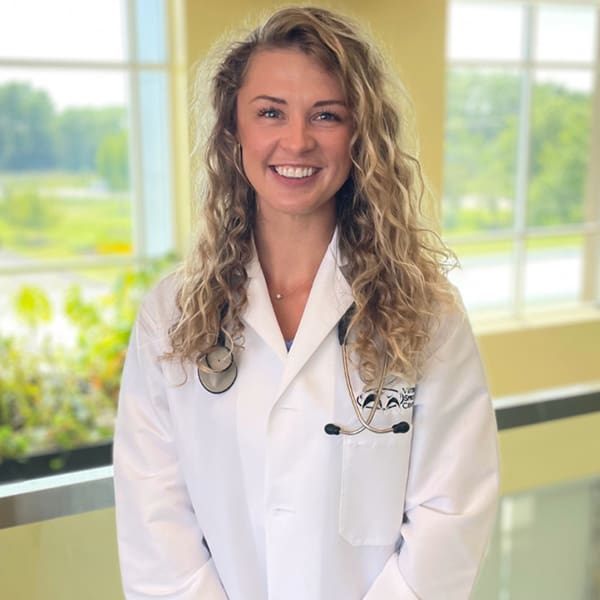Abby Ostronic DVM, DACVIM
Internal Medicine

DVM
Kansas State University
Rotating Internship
Wheat Ridge Animal Hospital (Colorado)
Residency
Texas A&M Veterinary Teaching Hospital
Professional affiliations (AVMA, etc):
AVMA
ACVIM-SAIM
Comparative Gastroenterology Society (CGS)
Society of Comparative Hepatology (SCH)
Get to Know the Expertise, Skill, and Heart Behind VSC
Why did you choose a career in veterinary medicine?
From an early age, I always had pets at home, and they were a constant source of comfort through life’s highs and lows. They played a meaningful role in shaping who I am, and becoming a veterinarian felt like a natural way to give back to them—even just a little—for all they gave me. I chose veterinary medicine because it allows me to support the powerful human-animal bond while advocating for those who cannot speak for themselves. The field’s diversity—ranging across species, conditions, and complex pathophysiology—offers continual learning and the opportunity to make a meaningful impact on both animal and human lives.
What sparked your passion to focus in internal medicine?
I knew early in veterinary school that I wanted to pursue specialization, but it was during my internship that I realized internal medicine was the right path for me. I was drawn to the complexity of the cases and the opportunity to gather clinical information, interpret diagnostics, and create comprehensive therapeutic plans. I find the interplay between multiple organ systems—particularly the gastrointestinal tract and endocrine disorders —especially compelling. Internal medicine also allows me to form long-term relationships with patients and their owners, which aligns with my passion for providing continued care and striving to ensure the best possible quality of life.
What are some of the biggest challenges in your area of expertise?
One of the biggest challenges in veterinary internal medicine is the complexity of many cases. Despite our best efforts and the collaboration of multiple specialists, there are instances where we cannot fully determine the cause of a patient’s illness or why they are not responding to appropriate therapies. This uncertainty can be particularly difficult, as we are dedicated to providing the best care possible. I find it essential to always be open and honest in communication, especially when we are unsure of the diagnosis, when delivering a difficult prognosis, or when the path forward remains uncertain. It requires a great deal of patience, strong communication within the team, and a commitment to the patient and their owners. The challenge is not just in finding a diagnosis or effective treatment, but in maintaining the resilience and focus to continue working through difficult cases, ensuring that every effort is made to improve the patient’s quality of life.
Is there a particular case that has inspired you?
One case from my residency will always resonate with me and motivate me to explore every possible avenue of perseverance. Sharky, a Scottish Terrier, was a newly diagnosed diabetic who presented in critical condition with Diabetic Ketoacidosis (DKA). While his DKA began to resolve thanks to insulin and vigilant monitoring, the condition’s impact on his body led to multiple complications, including seizures, regurgitation, and suspected thromboembolic events affecting his lungs and brain. Throughout his prolonged hospital stay, there were many moments when I was deeply concerned for his wellbeing. However, we continued to support him in every way we could. Eventually, we decided to place a feeding tube using a minimally invasive approach with endoscopic assistance (PEG tube), which became a turning point in his recovery. Once his other comorbidities were medically managed, we transitioned him to feeding through the PEG tube, which also facilitated medication administration, including his insulin injections. After 16 days of intensive care, Sharky was discharged from the hospital and is thriving at home. I was even able to remove his PEG tube as he is now eating on his own and receiving all necessary medications. This case was a powerful reminder of the importance of persistence, creative problem-solving, and the human-animal bond in veterinary care.
What do you like to do outside of work?
Outside of work, my husband and I enjoy staying active with our two golden retrievers, Remi and Rueger. We love hiking, going on walks, and taking them to restaurants and breweries with outdoor patios. I also enjoy cycling, running, and spending time reading books or binge watching TV shows during my downtime. We’re excited to explore the many food opportunities that Chicago has to offer!
